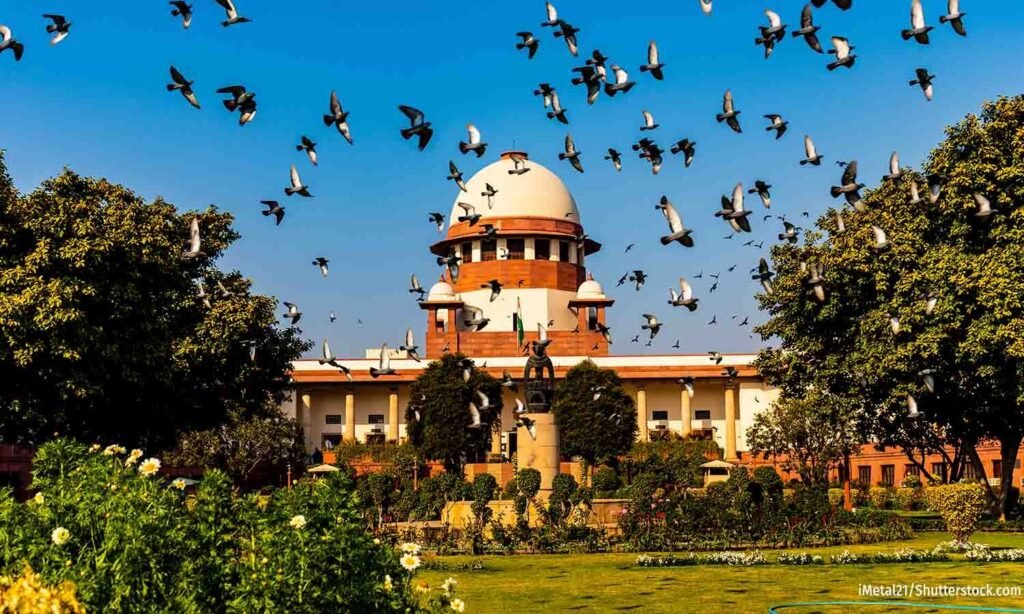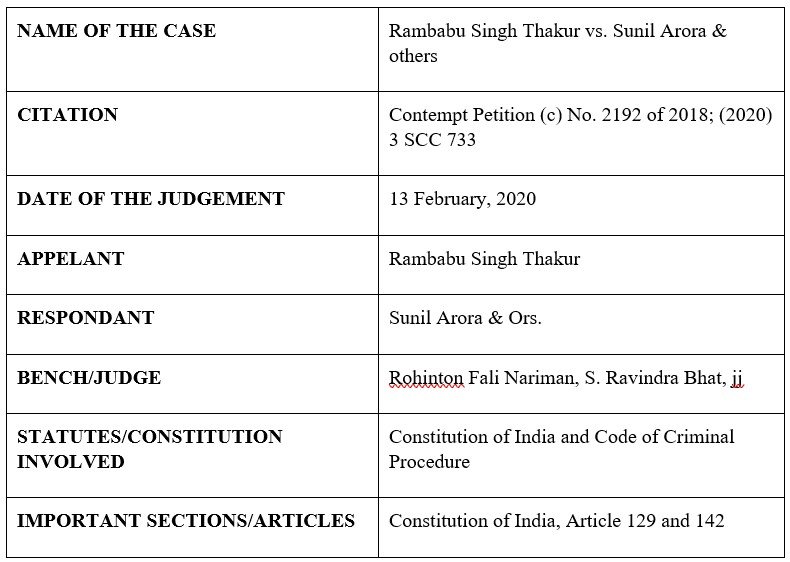
GENERAL INFORMATION

FACTS OF THE CASE
- The current case is associated with the idea that shows how political activity is criminalised in India. “Criminalization of politics refers to the person having criminal records in pasts wants to enter into the politics.” It is harmful for the public interest because criminals enter into politics with the help of politicians, that gives political parties more benefits at large. The criminal histories of the selected candidates are not made public on the websites of the political parties.
- In this case, the Supreme Court of India noted that the number of criminal politicians in India has increased over the last four general elections, and political parties have provided no explanation as to why they chose a candidate with a criminal background. In 2004, 24 percent of the members of Parliament were facing criminal charges. In 2009, this figure jumped to 30%, then to 34% in 2014, and to 43% in 2019.
- The case focuses on disregard of directions issued by Supreme Court of India in case of Public Interest Foundation and ors vs Union of India also known as “Electoral Disqualification Case“. Wherein two petitions were filed by BJP Leader Ashwini Upadhyay and an NGO – Public Interest Foundation.
- The purpose of filing this case was to request guidance from the Indian Supreme Court about the ban on criminals from contesting the election and being elected as Members of Parliament.
ISSUES RAISED
Whether the Supreme court by making additional laws can disqualify the membership of Parliament exceeding Article 102 (a) to Article 102 (e)?
ARGUMENTS FROM THE APPELANT SIDE
- Learned counsel for the petitioner submitted that the right to contest the elections is a statutory right but not a fundamental right but it has to be followed by the pursuance of the constitutional principles in order to maintain complete governance and unprejudiced politics.
- Learned counsel for the petitioner also stated that not to give the chance to the person to make law who has already break the law earlier, he should not to be allowed to participate in elections and not the part of legislature.
- It is also expressed that the persons having criminal record should not be prioritized over the candidates who have clean background in order to keep public interest at the first place.
- Learned counsel for the petitioner stated that the constitutional principles are set for the benefit of public at large. Giving tickets to the candidates who have criminal records would allow the criminals in political world.
ARGUMENTS FROM THE RESPONDENT SIDE
- Learned counsel representing the respondent stated that just because of criminal records on political candidates cannot exclude them to participate in elections.
- Learned counsel representing the respondent express that on the basis of principle of separation of powers, the respondent satisfied the basic structure was enshrine under the constitution.
- It is also stated that under Article 142 there is no scope of adding the words by courts in the already existing laws.
RELATED PROVISIONS
Constitution of India
Article 129:- Supreme Court to be a court of record.
The Supreme Court shall be a court of record and shall have all the powers of such a court including the power to punish for contempt of itself.
Article 142:- Enforcement of decrees and orders of Supreme Court and unless as to discovery, etc.
Supreme Court in the exercise of its jurisdiction may pass such decree or make such order as is necessary for doing complete justice in any cause or matter pending before it, and any decree so passed or orders so made shall be enforceable throughout the territory of India in such manner as may be prescribed by or under any law made by Parliament and, until provision in that behalf is so made, in such manner as the President may by order prescribe.
Subject to the provisions of any law made in this behalf by Parliament, the Supreme Court shall, as respects the whole of the territory of India, have all and every power to make any order for the purpose of securing the attendance of any person, the discovery or production of any documents, or the investigation or punishment of any contempt of itself.
Code of Criminal Procedure
Doctrine of Innocence: “Doctrine of Innocence” operates on the premise that no one is guilty until they are found guilty, the fact remains that a person who is the subject of many criminal charges and is under investigation cannot be described as innocent in common usage.
JUDGEMENT
- The Supreme Court directed the political parties at the Central level and State level to upload on their respective websites the correct details concerning the pending criminal cases against the selected candidates, with the reasons why such candidate has been selected instead of other candidates with no criminal record.
- Such information must also be published in one local newspaper and one national newspaper, and on the official media platforms of the political party, including Facebook, and Twitter. The details must be published within 48 hours of the selection of the candidate and not less than two weeks before the first date for filing of nominations, whichever is earlier.
- All the concerned political parties must also submit a report of compliance with the directions passed by the Apex Court with the Election Commission of India within 72 hours of the selection of the candidate, and if any political party fails to submit such report to the Election Commission, the Election Commission shall bring such incident to the notice of Supreme Court of India as being in contempt of court’s orders.
CONCLUSION
The Supreme Court of India has emphasized widely in the current case commentary on the growing criminalization of politics, which is harmful to the public’s welfare because it not only damages the root cause of our political system but also limits the opportunity for innocent candidates to run against criminal candidates. The Supreme Court examined these challenges and provided different guidelines to improve political health.




0 Comments